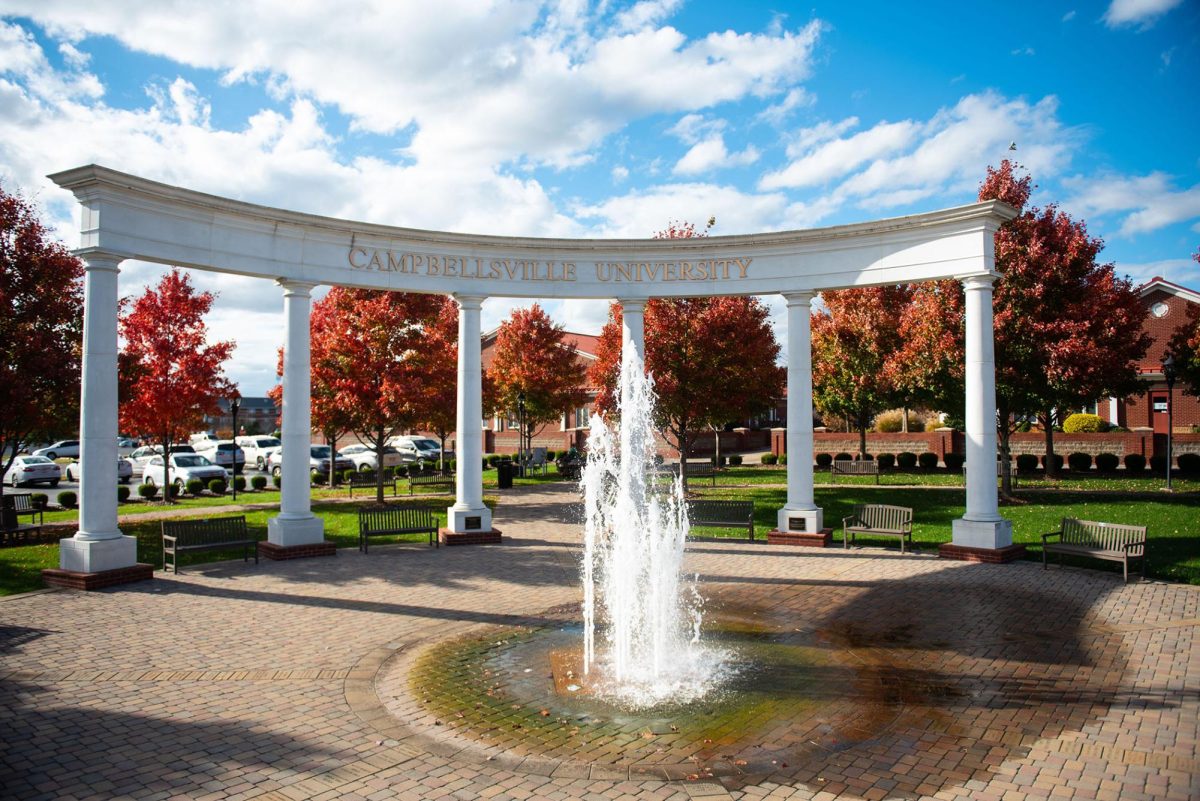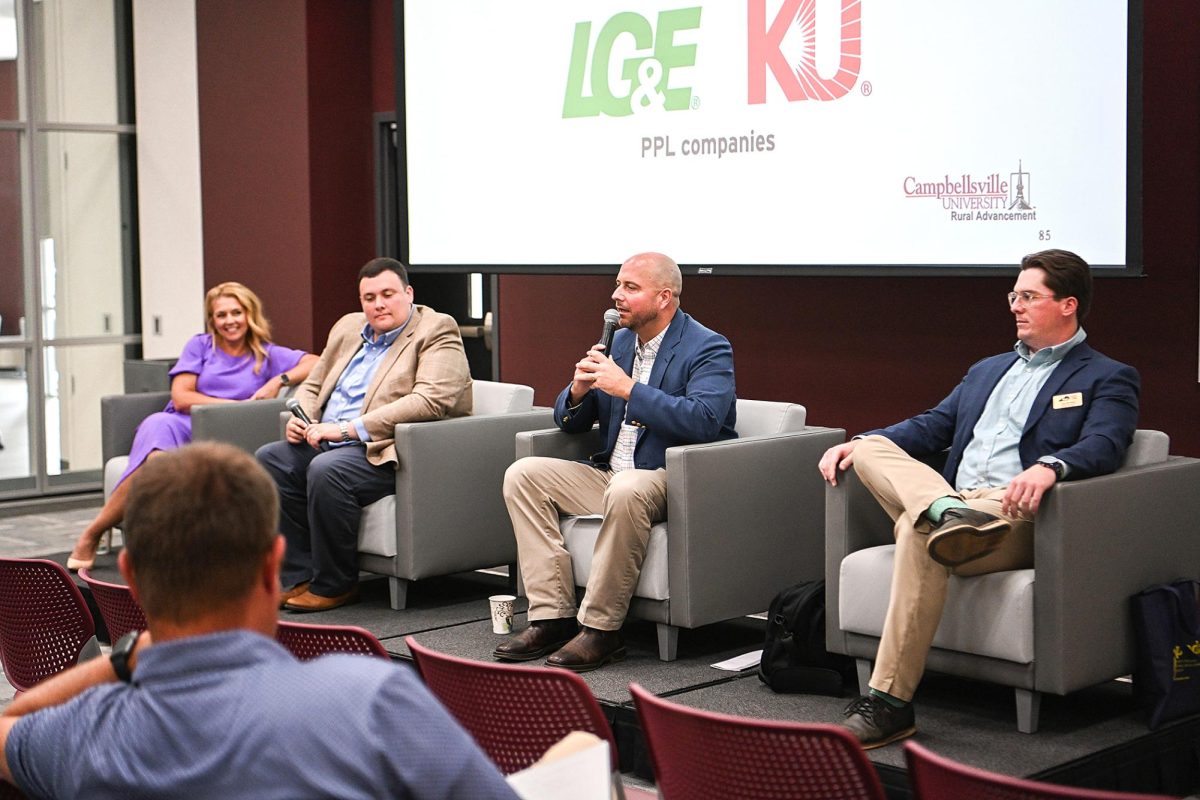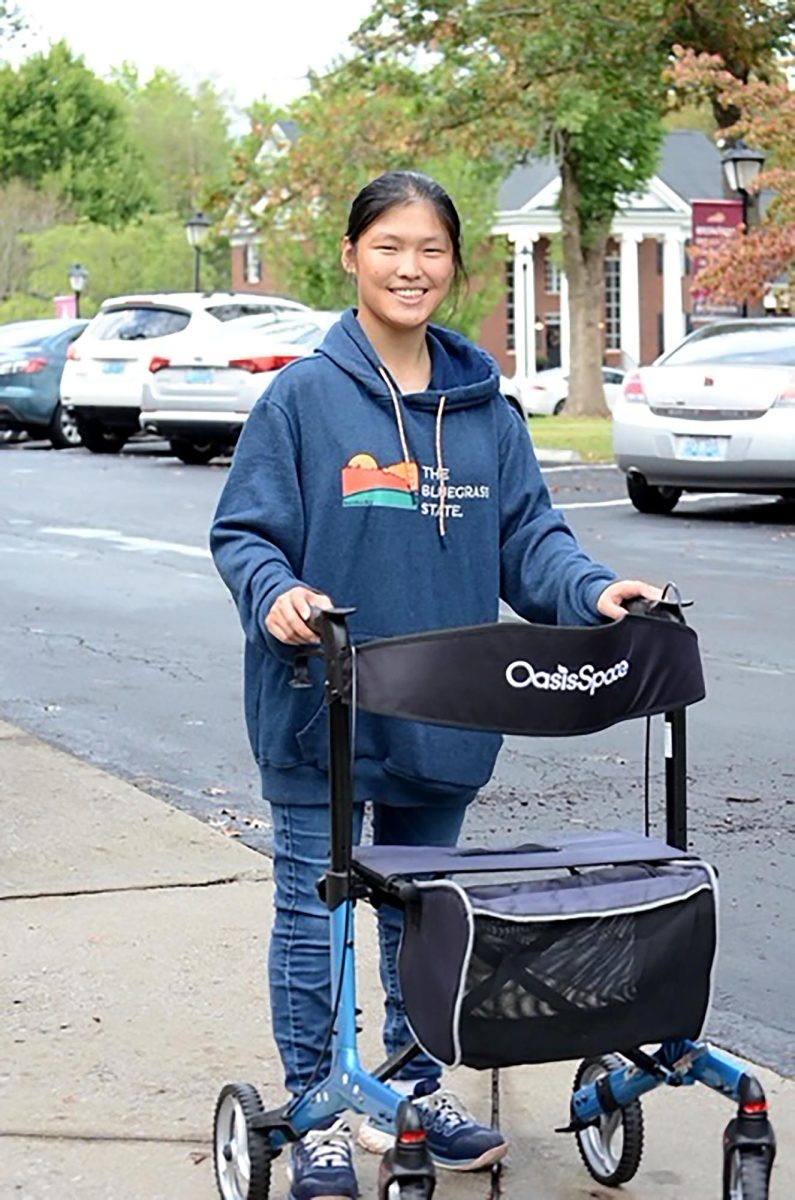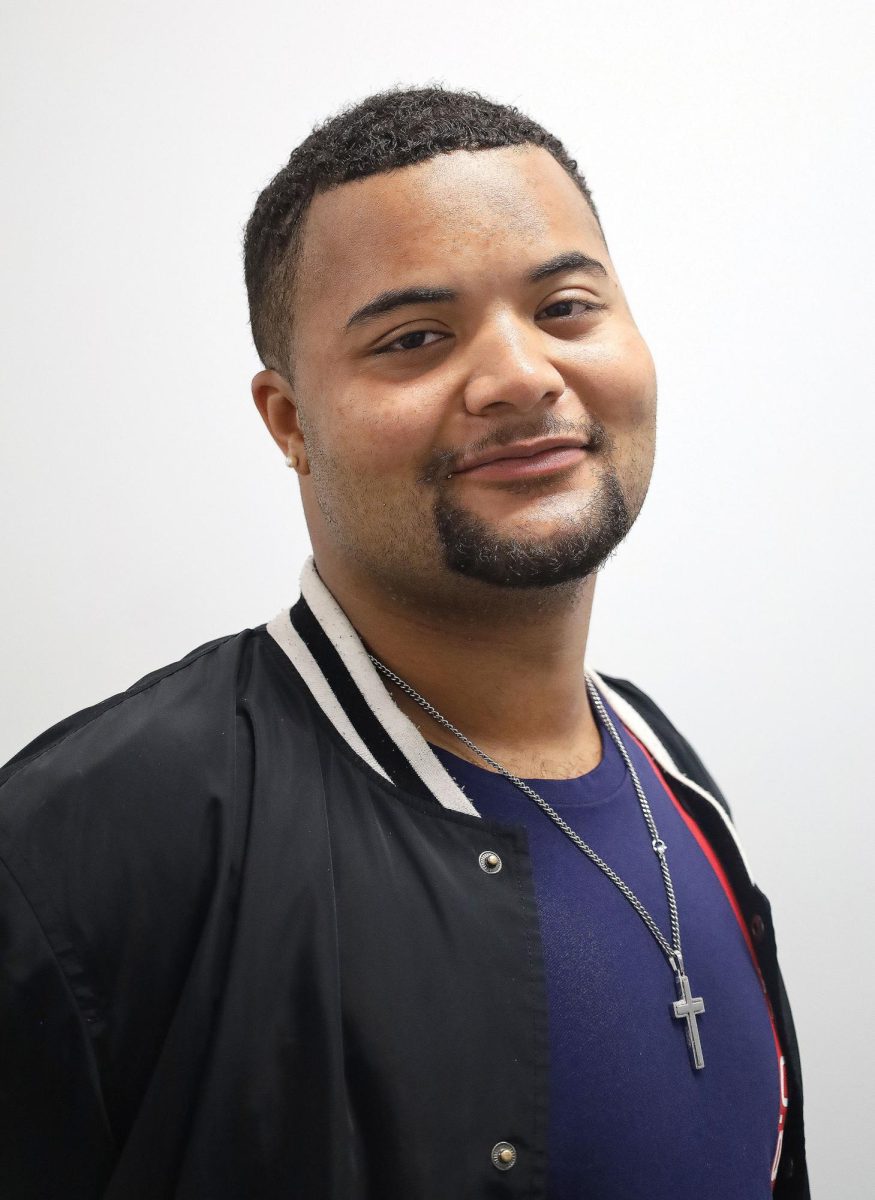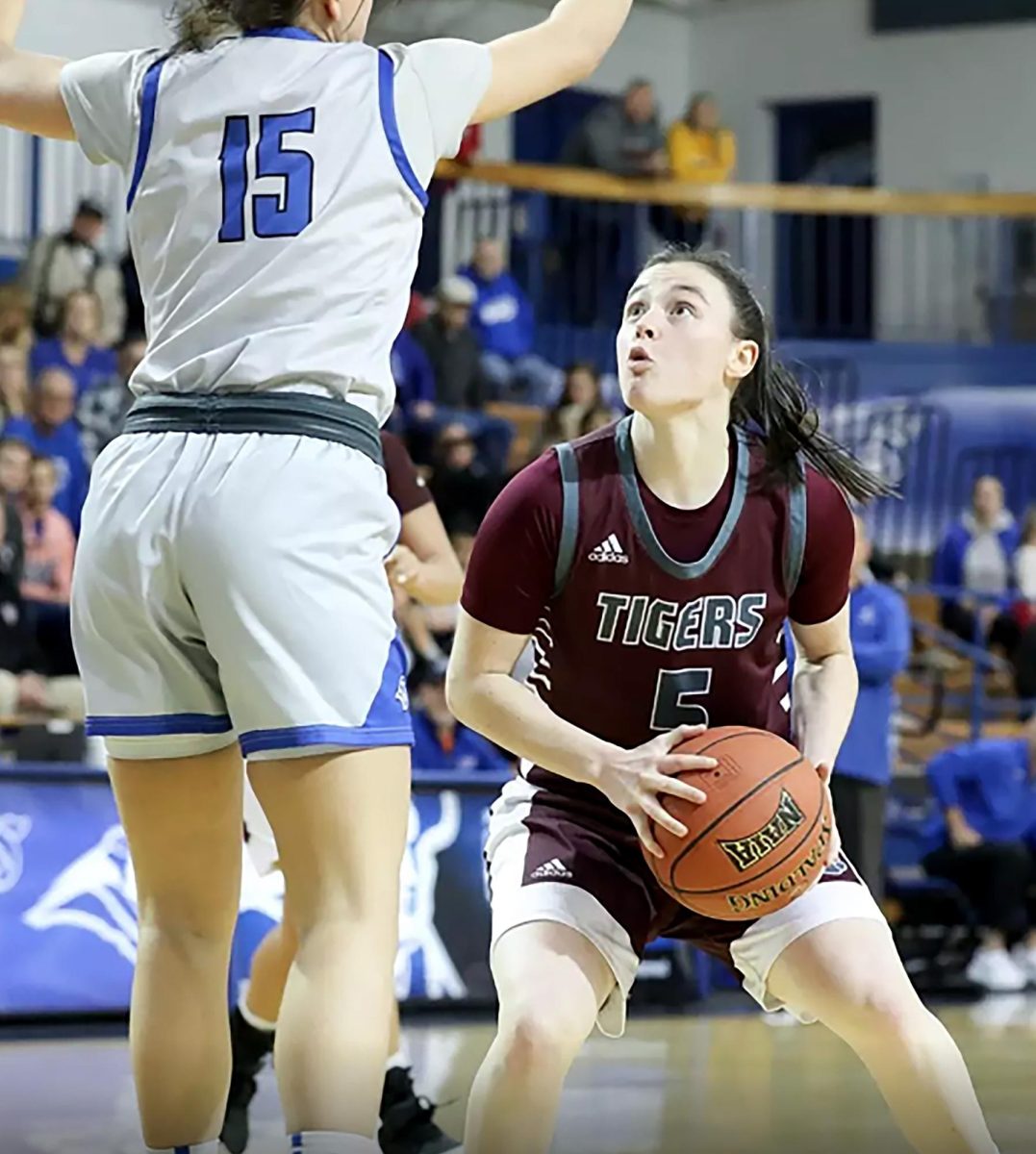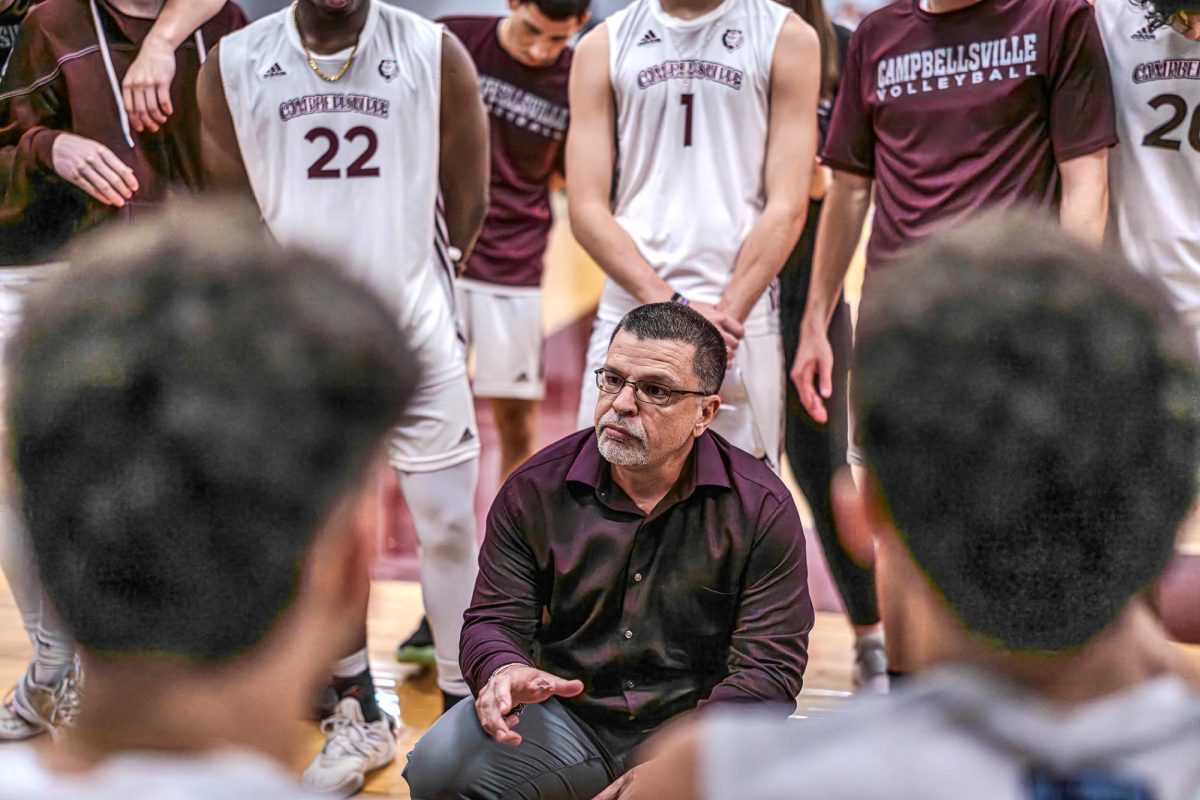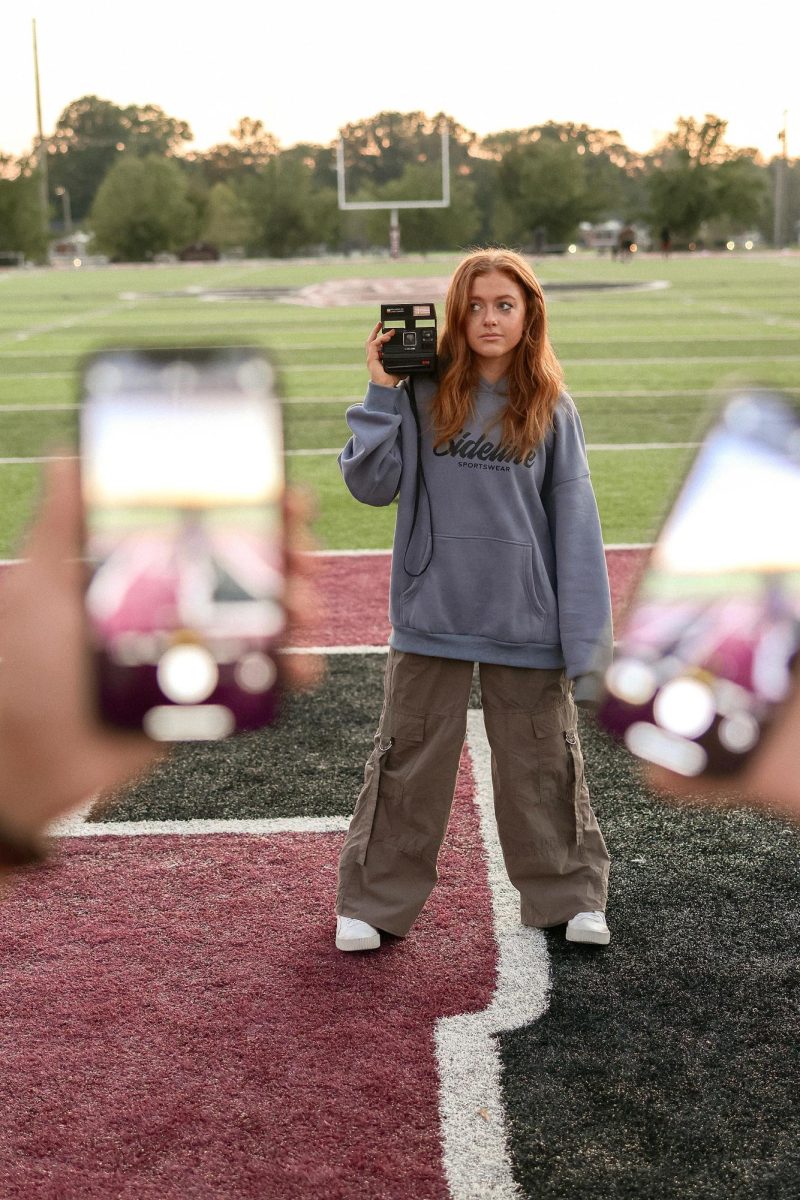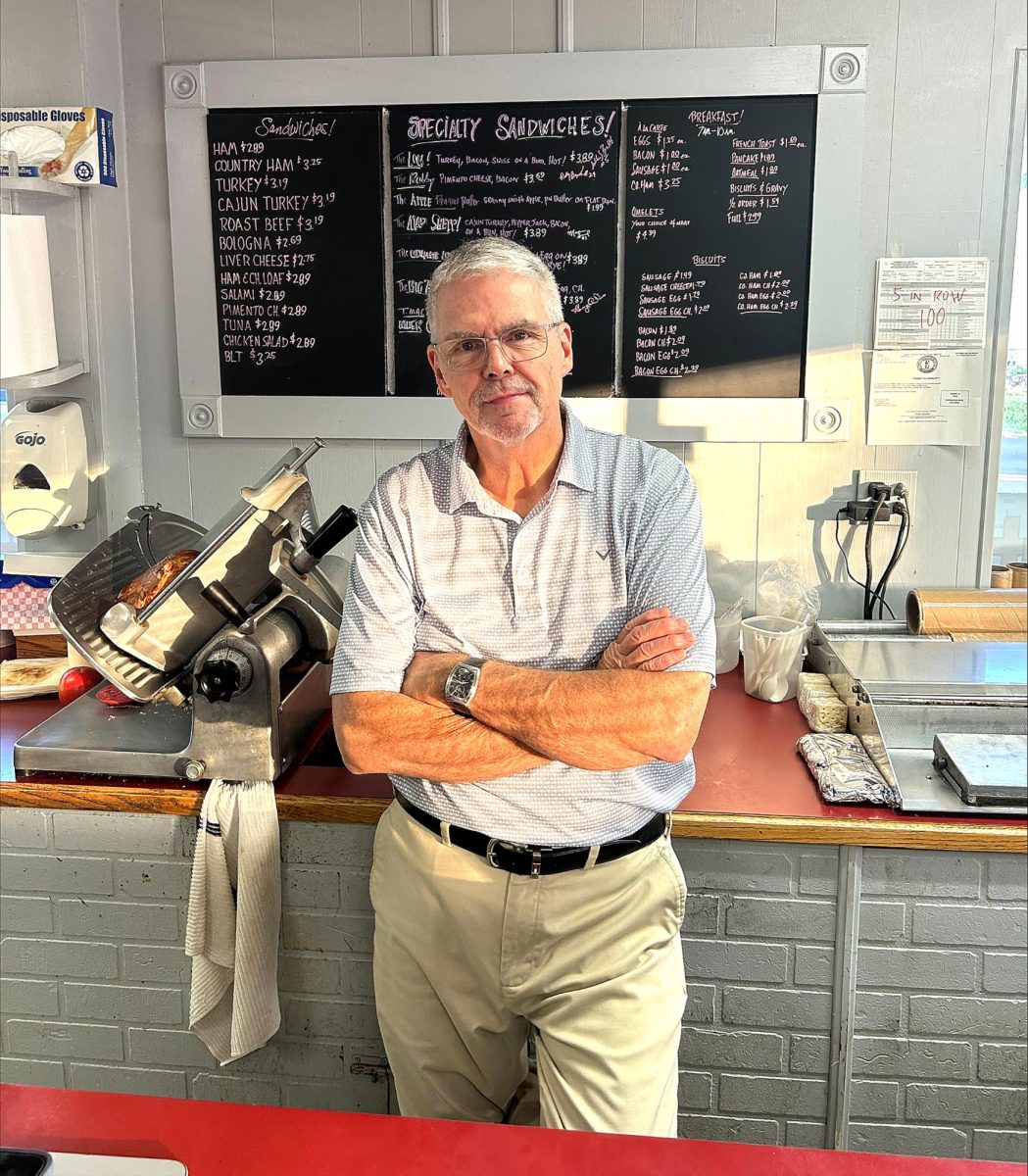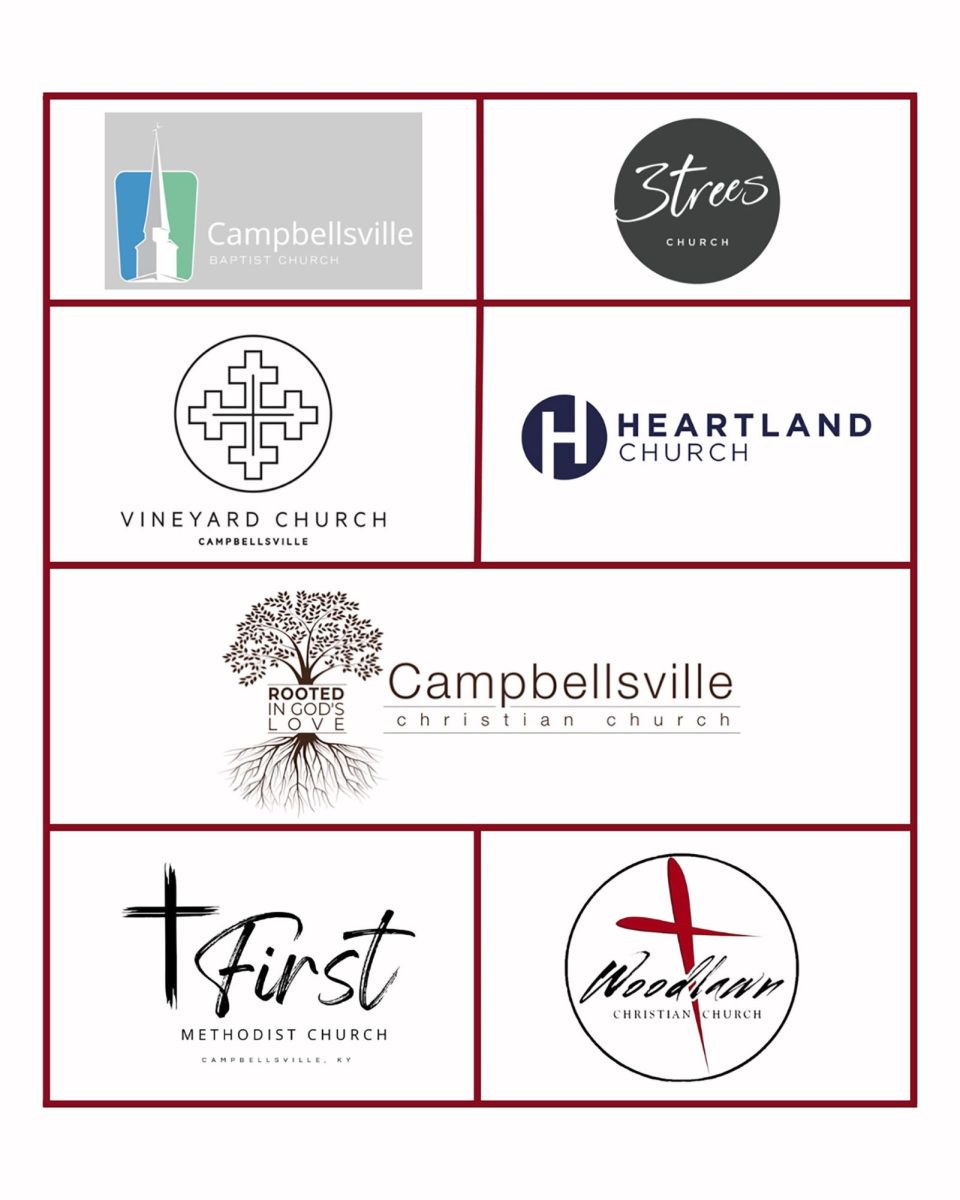With technology at the forefront, nursing students are stepping into a future where adaptability and compassion go hand in hand.
On April 22, Campbellsville University’s School of Nursing hosted the Spring 2025 Nursing Career Fair in the Student Activity Center.
Dena Clements, RN program coordinator, organized the event to expose students to the companies that can give them a job.
“We want students to start talking to potential employers early on. They also offer careers as a nurse aide or nurse externships,” she said.
Michele Dickens, Campbellsville University’s dean of the school of nursing, has been in the nursing field for more than 40 years, and she experienced a big shift during her career.
“When I graduated, all processes were completed on paper, including charting, ordering tests and other essential functions,” she said. “The advancement of technology has significantly improved the effectiveness and efficiency of these responsibilities. Technology has also enabled seamless communication and connection across all levels of care that a patient may require.”
During her career, Dickens has come to truly embrace the use of technology.
“I have seen firsthand how its integration is ultimately centered around providing a more comprehensive, safer and more efficient healthcare experience for patients,” she said. “In the academic setting, technology has opened up an incredible range of resources and tools, placing information right at students’ fingertips. This access better prepares them to deliver safe, evidence-based care, and enhances their confidence as future nurses. Reflecting on my journey, I feel grateful to have witnessed — and been part of — the remarkable transformation technology has brought to both patient care and nursing education.”
According to Dickens, telehealth is already expanding, especially since Covid because a lot of people had to get their healthcare that way.
“It’s important that we use technology like automation and telehealth in a way that helps our patients become healthier,” Dickens said. “I do think it’s going to be used much more. We’re going to see nurses not only working at the bedside, but they’re also going to be working remotely to support the patient when they’re in acute care facilities.”
Being in this field for a long time, Dickens realizes that nursing students may face many challenges stepping into this transformative workforce, especially the wide range of choices. However, she defines them as opportunities since after college nurses have the door open to do so many different things, like working at the bedside, travel nursing or being a nurse educator.
To better help students, Dickens said the nursing curriculum is focused on what nurses will see when they graduate.
CU senior Allison Eury is very excited to work in healthcare, but she still has some concerns about technological advancement in the field.
“While there is a lot of potential for technology in healthcare, I do have concerns, especially about making sure everything is correct,” she said. “It’s important to always double-check things to avoid mistakes, which is something I’ve learned to do by always triple-checking.”
According to Eury, technology can’t replace the role of the nurse because only humans’ compassion and love will create a strong connection with patients.
CU senior Lexi Riley believes that technology has many pros.
“Technology in healthcare has the potential to make a significant impact, such as helping with diagnoses, treatment, and overall medical care,” she said. “Honestly, you can never replace a nurse. A robot isn’t going to replace what a nurse can actually do.”
However, Riley recognizes the difficulties for older nurses to adapt to the new system.
“Older nurses may struggle with new technology due to a lack of familiarity, which can cause difficulty in adapting to the fast-growing use of technology in healthcare,” she said. “This is often specific to each facility’s technology.”
Sarah Holt, CU alumna, who now works as dialysis nurse at Fresenius Medical Care, is hopeful about the future of nursing.
“I know that we’re in a nursing shortage, but I think that things are slowly beginning to improve and I’m excited to see all of these changes happening,” she said.
According to Holt, technology plays an important role in nursing. As a dialysis nurse, she works with a computer system every single day.
“We collect a lot of data from the dialysis machine throughout each patient’s treatment,” she said. “We chart them every 30 minutes and we check on our patients.”
Holt believes telehealth has and will continue to change the way nurses interact with patients.
“I think there’s pros and cons to that,” she said. “Some nurses do really need to be one on one with a patient in person instead of telehealth, but there’s also benefits because it can cut out some unnecessary time in the doctor’s office.”
CU senior Lexi Riley understands that there are nurses that struggle with advancements in technology.
“Older nurses may struggle with new technology due to a lack of familiarity, which can cause difficulty in adapting to the fast-growing use of technology in healthcare,” she said. “This is often specific to each facility’s technology.”
However, Riley believes there are many positive aspects to technology in nursing.
“Technology in healthcare has the potential to make a significant impact, such as helping with diagnoses, treatment, and overall medical care,” she said. “Honestly, you can never replace a nurse. A robot isn’t going to replace what a nurse can actually do.”
